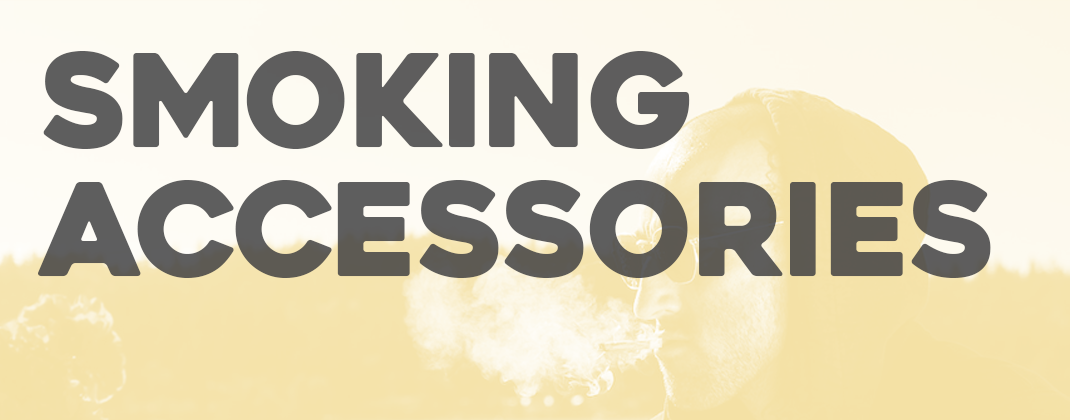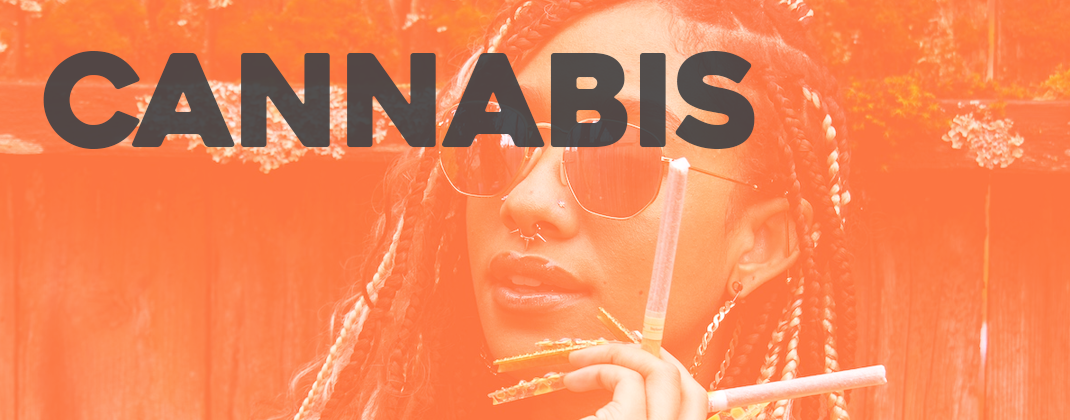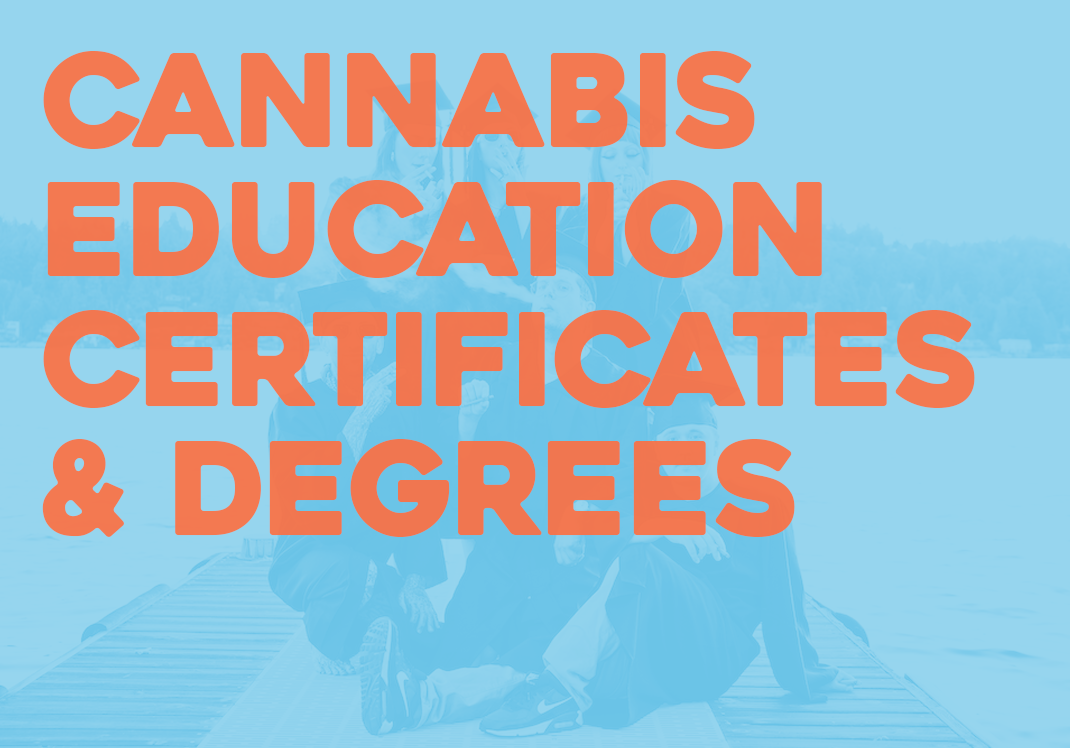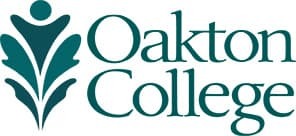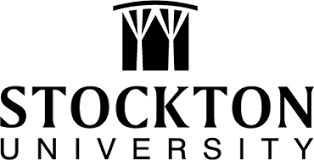Cannabis Education, Certificates and Degrees
Posted by DaySavers Team on Nov 9th 2025
A skilled and educated workforce is paramount to the success of any industry. We have law schools for lawyers, trade schools for specialties, as well as professional development programs and undergraduate degrees that span as far as you can possibly imagine.
But in an industry like cannabis that still lacks federal acceptance and carries a stigma dating far beyond the War on Drugs, where do employers find skilled workers? Legacy leaders and corporate money found there ways early on, but in an ever-expanding industry with tight margins and a demand for quality, where does the industry turn to find qualified growers, operators, chemists, retail managers, extractors and product developers?

The truth is, while the federal government might be in the way of legalization, institutes of higher education, industry leaders, companies and the dedicated have forged on with research, education and real-world, hands-on, applicable training and education for the next generation of cannabis professional.
That question, paired with the interest of where folks would go to be trained in these skillsets to fill these specialized roles within the booming cannabis market, is what led our team at DaySavers to give back. Opening doors to educational and professional opportunities that would in fact, better equip the next generation of cannabis professional with the expertise and understanding they need to advance in this in demand field through the Higher Potential Scholarship.
The Higher Potential Scholarship was sponsored by 25 partner brands, culminating in 86 winners from 30 states who received more than 250 awards valued at over $25,000.
But are there programs out there that offer certificates in cannabis education? And what about college and university programs that offer cannabis degree programs built around the plant?
That is what we set out to explore with the help of 4 college professors from separate institutions of higher education that offer cannabis courses, certificates and degree, as well as an interview with a dual-cannabis major who has experienced what these programs have to offer.
So let’s dig into the world of cannabis education programs, from courses and credentials to certificates, degrees, and graduate-level studies. I’m sure many of us would have found class much easier to pay attention to if we were graced with lessons on curing bud and making concentrates. And with that being said, class is now in session.
Introducing our Cannabis Education Expert Contributors
- Melissa Moore, Assistant Professor and Co-Coordinator of the Horticulture Department at SUNY Niagara;
- Steve Fix, Associate Professor and Chair of the Cannabis Studies Department at Oakton College;
- Rob Mejia, Adjunct Professor of Hemp and Cannabis Business Management at Stockton University;
- Dr. Jose Leme, Assistant Professor of Cannabis Biology and Cultivation Systems at Southern Illinois University; and
- Jackson Rund, a dual-Bachelor of Science in Cannabis Chemistry and Business Student from Lake Superior State University and LSSU Cannabis Club President.
So, Are There Really Cannabis Degree and Certificate Programs?
The straight answer is yes, there are vast numbers of programs available for developing general knowledge as well as in-depth and specialized skillsets in and around cannabis.
These programs can range from:
- Free and Open-Source courses and programs;
- College-Based Courses, Micro-Credentials and Certificate programs;
- Associate's, Bachelor's, Master's, and even Ph.D. programs;
- Private Accredited and State-Accepted Certification programs;
- Professional Organization or Certifying Bodies; and
- State and Local Governments.
And the range of focuses is even longer, spanning:
- Cultivation, plant science, agriculture and horticulture;
- Compliance, testing, regulations and risk management;
- Business, product development and scaling ventures;
- Healthcare, therapy, medicine, and caregiving;
- Biology, chemistry and pharmacognosy;
- Extraction, concentrates and culinary;
- Cannabinoids, terpenes and the endocannabinoid system;
- Budtending, management, consulting and sommelier;
- Law, real estate and consumer protections; and
- Advocacy, general studies, and everything in between.
And while cannabis may not be legal at the federal level, the passage of the 2018 Farm Bill by the federal government legalized the cultivation of hemp plants that do not test higher than 0.3% THC, and in turn, the sale of hemp derived products.
This opened the doors for hemp and cannabis education to establish itself nationwide, and in turn, provide a clear pathway for folks interested in pursuing a career in the legal hemp and cannabis industry, one of the fastest growing and exciting industries in America today.
Considering a Cannabis Certificate or Degree? Is it a Pipe Dream?
Absolutely not!
Over the past 5 years, there has been an over 400% increase of cannabis legalization in America, including medical in 36 states and D.C and recreational in 18 states, with full legalization open to over 65% of the U.S. population. The industry supports around 425,000 jobs at the moment, and with new markets opening regularly, that number will only increase.
And consider this: as of October 25, 2025, over the past year, the 14 state markets tracked by our analytics partners at Headset - who curate point-of-sale data from these markets - reported the following Total Sales and Total Units Sold data by cannabis product category:
- Flower: $9,174,985,035 Sales – 353,089,330 Units
- Vape Pens: $5,505,890,407 – 231,187,439
- Pre-Rolls: $3,206,033,569 – 329,001,482
- Edibles: $2,657,256,530 – 208,238,977
- Concentrates: $1,387,194,723 – 73,615,226
- Beverages: $252,464,942 – 27,941,731
- Capsules: $160,626,324 – 6,371,483
- Tinctures & Sublinguals: $127,840,308 – 4,028,251
- Topicals: $109,131,806 – 3,939,396
That means between Halloween 2024 and 2025, the cannabis industry in just 14 legal states made a staggering $22.581 BILLION on the sale of 1.234 BILLION units of product, and MJBizDaily pins the total U.S. economic impact of regulated marijuana sales in 2024 at over $123 BILLION. That’s a lot of coin.
So, should you consider preparing yourself for a journey into the professional world of cannabis and hemp? Follow your heart, because if your heart says yes, the finances of the industry check out as an opportunistic field for the canna-curious, and masters of marijuana chemistry alike.
There is a place for you in cannabis, all you have to do is take a chance on yourself and gain the required knowledge to fulfil the weed role of your dreams! From retail, cultivation, processing and logistics, to engineering, chemistry, policymaking and entrepreneurship, the clouds of smoke are the limit!
A Look at the Range of Cannabis Certificates and Degrees Available
The most readily available certificate and degree programs specific to cannabis we see from accredited higher education institutions and professional development programs alike, are:
Organizational Certificate Programs
The name Ganjier is synonymous with highly interactive, high-quality cannabis sommelier training taught by legends of the industry like Swami Chaitanya and Derek Gilman, with a trip to the Emerald Triangle as part of the curriculum. While not a higher education institution, this specialized education centered around the plant produces highly knowledge Certified Ganjiers, a title that carries a high distinction within the cannabis industry.
Their less intensive Ganjier Product Specialist program is 100% online and takes just 10-hours to complete, offering a respected industry credential upon completion of a curriculum focused on comprehensive product knowledge, optimized consumption strategies, and quality preservation, providing advanced knowledge of every cannabis product on the market today.
The folks at Ganjier contributed 3 tuition-free seats to their GPS program for our Higher Potential Scholarship, with the awards going to top applicants.
Oaksterdam University, The Trichome Institute, and Scholarship partners Green CulturED and Operator Academy offer certificate programs with extremely valuable curriculums taught by experts. Operator Academy offers programs around Operational Safety, Manufacturing, Production and Extraction Essentials, while Green CulturED offers one of the most extensive lineups of specialized certificate programs compared to both colleges and non-degree granting entities.
One of Green CulturED's claims to fame is that they are the most accredited training provider in the industry, respected by organizations like the Washington and West Virginia State Departments of Health, the EPA, and the ANSI National Accreditation Board.
Their learning pathways include retail, cultivation, processor manufacturing and laboratory operations, and within these pathways are TONS of focuses from 100-level programs to highly specialized and advanced 400-level pathways, including:
Retail Cannabis Education Pathways: Adult-Use, Medical, Delivery, Social Consumption, Compliance, CBD Retail
- 100-Level: State and Universal Responsible Vendor Training
- 200-Level: Delivery Driver, Security Guard, and Patient Advocate
- 300-Level: Dispensary Technician, Medical Cannabis Consultant and Waste Disposal
- 400-Level: Retail Cannabis Supervisor, Cannabis Extraction Processor and Batch Test Collector
Cannabis Cultivation Learning: Home Grower, Micro-Cultivator, Propagation Facility, Commercial Cultivation, Agronomist and Outdoor Cultivation
- 100-Level: Commercial Handler and Plant Trimmer
- 200-Level: Horticulture Technician and Cultivation Worker Safety
- 300-Level: Cultivation Agent
- 400-Level: Master Cannabis Grower, Cultivation Supervisory, Security Management and Extraction Processor
Cannabis Product Manufacturing: Homemade Infusions, Product Manufacturer, Edible Production, Solventless Extraction, Volatile Extraction and Product Development
- 100-Level: Cannabis Food Safety
- 200-Level: Extraction Technician and Manufacturing Technician
- 300-Level: Infused-Product Development and Manufacturing Agent
- 400-Level: Manufacturing Supervisor
Cannabis Laboratory Operations: Consumer Education, Testing Laboratory, Sampling and Cannabis Batch Testing, Infused Product Testing, Extraction Processor and Industrial Hemp Production Testing
- 100-Level: Testing Laboratory Facility
- 200-Level: Laboratory Analyst and Laboratory Worker
- 300-Level: Laboratory Agent Batch Collection Tester
- 400-Level: Laboratory Supervisory and Product Manufacturer Supervisor
Sources of education may vary, but a high-quality education in cannabis will surely prepare you for what lies ahead. Cannabis certificates from non-higher education institutions are a great way to build your skillset and knowledge, network with fellow learners, take advantage of employment networks and partnerships developed by the organization, obtain universal and state-specific certification, and bolster the resume and authority of any developing cannabis professional.
Popular Organizational Certificate Programs Include:
- Accredited Responsible Vendor Training
- Medical Cannabis Consulting
- Budtender Training, Sommelier, Retail Management, and Security Professional
- Advocacy
- Veterinary
- Banking and Finance
College and University Green Flower Certificates Level Credentials
Highlighting a breakthrough between the private and public sectors of cannabis education, the introduction of Green Flower certificate programs, offered through colleges and universities across the country, has been monumental in the progression of cannabis education. Schools offering these programs can range from the Borough of Manhattan Community College and Portland Community College to the University of Arizona and Gonzaga University.
They are a turn-key solution for higher education institutions to offer cannabis training for in-demand skills and jobs has launched across community colleges and major state universities across the country, and most likely outnumbers the amount of full-on degree programs offered by colleges and universities. That’s massive!
Green Flower’s curriculum was developed by experts from across the higher education landscape, including instructional designers with more than 30 years of combined experience teaching graduates and undergraduate students. Updated at least twice annually, their instructors are graduate-level degree holders affiliated with major research universities, are all active in the cannabis industry, and deliver knowledge in a way that aligns with upper-division and graduate-level courses.
These 24-week, online certificate programs are instructor led and asynchronous, meaning you’ll be able to learn directly from an expert anywhere with an internet connection on your own time.
Green Flower college and university programs cost anywhere from $750 to $799 for one 9-week, 3-unit course, and up to $2,450 to $2,950 for the entire 24-week, 9-unit program. It appears that colleges and universities have flexibility over the price of their GF programs, as tuition rates varied among institutions. Some even offer a “Croptober” coupon code for up to $400 off tuition when Fall classes approaching, go figure!
Additional student resources provided by Green Flower include instructional support, career development, and access to Green Flower’s employer network, itself a valuable connection that can lead to a position in the cannabis industry.
Popular College Green Flower Certificate Programs
- Healthcare and Medicine;
- Agriculture and Horticulture;
- Business, Compliance and Risk Management;
- Product Development and Design;
- Cultivation, Cannabis Extraction and Product Development; and
- Retail Operations.
A Look at SUNY Niagara Cannabis Courses and Programs with Melissa Moore, Co-Coordinator of the Horticulture Department

The Cannabis Program at SUNY Niagara is part of the Department of Horticulture, which offers a Certificate in Horticulture with a specialization in Cannabis. The college reasoned that the broader Horticulture degree would provide the foundational plant science knowledge to give candidates more opportunity while also delivering cannabis-specific intsruction for those headed to the cannabis industry.
Because while the cannabis industry is growing, the job market isn’t necessarily flooded with a bunch of dank roles just yet.
The Department offers an Associate of Science in Horticulture where students can use their electives to take any of SUNY Niagara’s eight current cannabis course offerings. Three additional courses are coming in 2026, including two new lab courses that will make use of the department’s upcoming cultivation and extraction facility.
The school works with hemp, which is simply cannabis containing less than 0.3% THC, but as Moore explains, “it’s all about methodology."
The new extraction labs will teach several techniques, including ethanol, ice water and rosin pressing while avoiding hydrocarbon extraction. With the Cannabis Culinary department also expanding, students can soon take part in a one-of-a-kind 30-credit Cannabis Culinary Certificate program, developed in collaboration with the American Culinary Federation, that ties together everything from farm to table.
Many courses that are available both online and in person, through certain courses, such as those in the Culinary program, require in-person participation and are exclusively offered on campus.
Moore said New York's 2016 legalization vote spurred the college into action and said the goal is to train workers for non-retail roles. "I'm really trying to make people skilled beyond the role of budtender," she said.
Cannabis Coursework and Curriculum at SUNY Niagara
There are five ways to access cannabis coursework at SUNY Niagara:
- 60-Credit Associates of Science in Horticulture
- A 30-Credit Certificate
- 11-13-Credit Micro-Credentials
- Senior Scholar Program - tuition-free for students aged 60 and older)
- Workforce Development – allows non-enrolled learners to audit courses
In 2023, the school’s Workforce Development Program received a $1 million grant from the State of New York and SUNY Ecologists. This grant allowed SUNY Niagara to create a consortium with three other community colleges with the goal of expanding the reach of cannabis education across the region.
The school also founded the SUNY Cannabis Conference, which will hold is fourth annual even in January 2025, as well as a scholarship program offering tuition coverage for cannabis coursework. Although the grant funding ends this year, its impact has been immense.
Within the Horticulture program, students can take courses such as Medical Applications of Cannabis, History, Society and Compliance, which traces the plant’s journey through time as far back as 12,000 BC, and Technology and Products which focus on processing.
The department also offers thee Micro-Credentials focused on seed-to-sale education:
- Cultivation of Cannabis
- Business of Cannabis
- Processing and Manufacturing of Cannabis
Micro-Credentials consist of 3-4 courses, while Certificates are 30-credits and focus solely on cannabis science with common general education requirements. The full Associate’s degree includes those general courses, culminating in a Horticulture Degree with a Cannabis Specialization, the most popular track.
When in comes to online versus in-person learning, Moore says, “Being a science, it’s difficult to have everything in an online format. A lot of our staff and faculty don’t feel online is as strong as in-person learning, so there are courses that haven’t transitioned online, including labs.”
So while a full certificate or degree can't yet be completed fully online, all micro-credentials are fully-accessible online, and the scholarships cover both formats.
Industry Connections and Student Opportunities at SUNY Niagara
Since its launch five years ago, the response to SUNY Niagara’s program has been overwhelmingly positive, from students to the regional industry. Cultivators within and beyond New York are specifically recruiting SUNY Niagara graduates because of the program’s strong reputation and hands-on approach.
More than 300 students have completed the program, with around 75-100 enrolled each year.
The cannabis curriculum has been a major driver of Horticulture enrollment, driving up enrollments by 200-300%. Classes are taught by Moore, with Chef Nate leading the Culinary courses. Students come from around the state, and even out of state, to pursue these accredited programs, with a few students coming from out of state to pursue this accredited program, which is fully recognized through the Horticulture department.
When asked what she hopes her students gain from this program, Moore explains, “We’re trying to create a complete farm-to-table experience where students can get hands-on and involved with the community, which is one of the biggest things you can get from college. The internet can answer questions, but what you really get from school is community and connection to the industry.”
As part of their degree programs, students complete a 120-hour internship, which provide experience in real-world situations and develops those industry connections. The annual conference and field trips to local cultivators further immerses students in the cannabis ecosystem.
“I like to go wherever I can find,” says Moore, “We visit indoor and outdoor farms, greenhouses, processors and testing facilities.”
When it comes to choosing a cannabis program, Moore emphasizes the importance of access to instructors: “Are you actually being taught by someone who will respond to you when you have a question?”
She also highlights the value of hands-on experience. Programs that provide real cultivation opportunities demonstrate true educational quality and depth. At SUNY Niagara, students grow hemp through a full cycle, and their harvests are shared with the Culinary department for infused cooking, as well as with the Massage Therapy program for creating topical salves. Wicked.
Careers, Challenges and Advice from Melissa Moore
When discussing career pathways after graduation, Moore notes that many entrepreneurs enroll to deepen their understanding of cannabis before launching their licensed cultivation businesses.
Others pursue processing or cultivation roles, where their credentials make them highly desirable candidates. Employers hiring educated and experienced graduates tend to see less turnover.
While SUNY Niagara’s courses have no formal age requirement, students must be 18 to complete the internship requirement and thus to earn a Certificate or Degree. However, individual courses can be taken by younger students.
The Horticulture Department reports nearly 100% job placement for students who complete internships, with many graduates securing full-time positions immediately upon completion. “Anyone that wants a job, gets a job,” Melissa says confidently.
College Certificate Level Credentials
Coursework, micro-credentials and certificate programs from accredited colleges and universities are fantastic paths toward a solid cannabis education and opportunities for employment in this wicked dope industry. And often, the curriculum completed in these programs can translate to credit hours towards additional certificates or even a full-on associate's degree.
Coursework and certificates from institutions of higher education are widely respected and offer high quality in-person and online options covering the basics of the plant, cultivation, all the way through entrepreneurship, law and policy. These programs can vary widely in their specific focus, ranging from budtender certification to cannabis industry human resources certifications.
The goal of these programs, like others, is to prepare students for employment in the industry, equipping them with the knowledge and skills identified by industry partners as vastly important for successful employment in the industry.
Programs can cover a range of general studies topics while others can focus heavily on horticulture and plant science, producing highly knowledgeable gardeners, as well as generalists who can wear many hats within an operation. The variety of options and pathways make considering a cannabis certificate or micro-credential a viable path towards a career in the industry.
The length of programs can vary, with micro-credentials requiring a select few courses to master specific developmental areas within cannabis, while others can encompass six or more courses, ranging from 9 credit hours all the way up to 18. Even one- or two-day intensives can produce a certificate upon completion, and with a certificate granted by a school like the University of Nevada – Las Vegas, you’ll have a resume builder that will be one of the first things employers see.
Popular College Level Certificate Programs
- Business Operations and Ownership
- Budtender and Dispensary Operations
- Medical Cannabis Consulting
- Culinary and Food Service
- Cultivation, Extraction and Product Development
Interview with Steve Fix of Oakton College, Chair of the Cannabis Studies Department
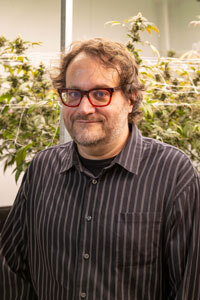
The Cannabis Studies Department at Oakton College was established in 2019 after Provost Ileo Lott developed the idea in 2018. At the time, the state of Illinois had a medical program and the need for consultants who were trained and qualified to work directly with patients. When J.D. Pritzker, who campaigned on bringing the legal market to the state and followed through in 2020, was elected to the governorship of Illinois five months after the college’s first cannabis program first launched.
This led to a lot of excitement around the program, which Fix labels as one, if not the first, in-person, for-credit college cannabis courses in the U.S. While there were programs offered online, Oakton’s in-person certification made its curriculum unique.
Being the first in Illinois also opened doors for partnerships with small companies, and eventually multistate operators (MSOs), fueling early enthusiasm and opportunity.
In 2022, Oakton expanded its on-campus offerings with a cultivation lab, designed as a scaled down version of a professional cultivation facility, funded through a partnership with PharmCan.
Cannabis Coursework and Curriculum at Oakton College
The program is designed to be workforce-aligned, emphasizing real-world experience over just classroom hours. Students learn the fundamentals in class and then apply that knowledge directly in the workplace. Oakton offers for-credit certificate programs that can also serve as electives for two-year degree seekers, with a focus on career readiness and pathways to four-year institutions.
The first cannabis certificate offered was Dispensary and Patient Care, followed by Transportation of Cannabis, and then the most popular program: the Cultivation Certificate, launched in 2022.
This certificate allows students to work directly with the plant and classes in these programs include:
- Introduction of Cannabis;
- Cannabis and Law;
- Pharmacology of Cannabis;
- Dispensary Operations;
- Experience of Illness;
- Cannabis Cultivation and Operations; and
- Cannabis Cultivation Lab with twice a week plant interaction.
Industry Connections and Student Opportunities at Oakton College
Fix emphasizes that instructors teaching cultivation courses must have real commercial growing experience. They are professionals who have grown and sold cannabis for production, not just home growers, ensuring students learn from those who understand and follow industry best practices.
Many students are able to intern with the same companies where their instructors once worked, showing how valuable early program partnerships have been. Oakton has developed connections with Illinois cultivators like Bedford Grow and edible manufacturers, helping students transition from classroom to career. Fix’s goal is to create as many of these real-world pathways as possible because those connections are what lead to employment.
While exact job placement numbers are hard to accurately quantify, Fix estimates over 900 successful student placements, attributing this to both the excitement around the program and it’s strong ties to the local industry.
And the response to the program has been exceedingly positive, from the institution and faculty to students and industry partners. The cultivation lab in particular has offered students access to realistic environments where they can learn through hands-on trial.
“Students can make mistakes and learn on plants in a space that mimics a cultivation facility as closely as possible.” Fix explains.
Cannabis courses at Oakton run for eight weeks, compared to traditional 16-week long semesters, though the cultivation lab course spans a full-semester to give students as much opportunity with the plant as possible. This structure helps students learn quickly and enter the workforce sooner.
Courses are also intentionally financially accessible, with the Introduction to Cannabis course running about $100, and online classes are offered at the in-state tuition rate, ensuring equitable access to this education. Fix believes streamlined courses void of unnecessary “fluff” serve students best, teaching exactly what they need to succeed in the cannabis industry.
Careers, Challenges and Advice from Steve Fix
When asked what students should look for when exploring cannabis programs, Fix stresses the importance of who designed the curriculum and how it’s taught. He values institutions that prioritize foundational knowledge and accountability, ensuring students get real education, not just exposure.
And it works. Industry response to the program has been strong, with Oakton’s graduates highly sought after.
“This is a mind-altering substance, so we have to think about what it’s doing inside somebody,” Fix explains. ”Cannabis companies appreciate that our students understand both the science and responsibility that comes with it, as well as the unique hands-on experience in the cultivation lab.”
The lab has also become an entry point for students who may not have been previously interested in science. Fix, who is personally invested in researching how to optimize these programs, says seeing that transformation is rewarding.
“When you see 35 students show up ready to learn or share their experiments during office hours is just awesome. That’s when you know the goals of the program are coming to life.”
When we asked what he hopes graduates take away from Oakton’s cannabis programs, Fix lists several outcomes:
- The knowledge needed to work in cannabis without overloading students with unrelated coursework;
- A fundamental understanding of the plant;
- Awareness of cannabis history and the impact on social equity;
- A grasp of plant chemistry and cultivation practices; and
- Knowledge of how cannabis supports medical conditions.
Fix also encourages students interested in cultivation to “come play around with ideas and learn how to do things the right way in a fun, hands-on environment.” He sees the lab as a gateway to deeper scientific learning, where curiosity naturally leads to experimentation and discovery.
Finally, Fix highlights Oakton’s scholarships for cannabis programs, funded in part through Illinois’ social equity licensing requirements to help expand access to the ever-expanding cannabis field.
College Associates and Undergraduate Degrees
As we approach full-on college cannabis degrees, let’s take a moment to soak it all in, for what once was a universally outlawed plant has now become an in-demand subject of study nationwide.
Associate's degrees in cannabis are more common in the higher ed landscape than bachelor's degrees, but for those schools who invest in these degree programs, they go all out, physically exposing students to live plants and on-site research facilities. Programs can contain over 10 courses spanning botany, sociology, and the science of how cannabis affects the mind and body and can take between 10 to 34 months to complete, based on the speed and courseload.
Beyond introduction to cannabis courses, students also learn about operations management, product development, and tax and legal regulations.
Full-fledged bachelor's degree programs are now graduating students who have completed comprehensive four-year curriculums combining foundational knowledge and specialized courses, preparing them to become leaders across many career paths in the industry.
Graduates with cannabis-specific degrees in subjects like biology and chemistry or business administration and medical plant sciences go on to labs and ventures with the skills developed through courses like pharmacognosy, laboratory fundamentals, phytochemistry, product development, and cultivation and retail operations management.
The in-person learning, labs and hands-on experiences offered by these programs feature incredibly knowledgeable faculty and cannabis-focused facilities that immerse students in environments similar to those they may one day work in, manage, or own.
Popular College Associate and Bachelor's Degree Programs
- Business Administration
- Medicinal Plant Sciences
- General Studies
- Horticulture
- Health Therapy
- Biology and Chemistry
Interview with Rob Mejia of Stockton University, Adjunct Professor of Hemp and Cannabis Business Management

Stockton University was an early pioneer in cannabis education. The school launched a Cannabis Business Minor in 2018, followed by their certificate programs in 2019. Then in 2024, Stockton made history again, offering the first and only Bachelor of Science in Hemp and Cannabis Business Management in New Jersey. Mejia was the program’s primary architect, leading research, writing the curriculum, and guiding the proposal through the faculty senate, the universities board of trustees, and ultimately state approval.
The four-year degree is heavily rooted in the business of cannabis, which is why the program is housed within the Business Department, with students completing 80-hours of business coursework including business-program staples like economics and statistics, alongside eight hemp and cannabis focused classes, which include an internship or independent study.
Cannabis Coursework and Curriculum at Stockton University
Internship experiences have evolved over time. For the first five years, students often interned directly with cannabis cultivators, labs, and dispensaries. Today, those opportunities focus primarily on hemp-related experiences, visiting cultivators, exploring packaging and marketing, product development, and learning how the hemp plant grows and is processed. While New Jersey isn’t a major hemp state, students gain valuable exposure to the plant, with many pursuing internships in research, consulting, law, or regulation to fulfill their program requirements.
When developing the four-year program, Mejia identified three distinct pathways within cannabis education: cultivation, science and business. And while cultivation programs came on the scene first, business programs have become the most popular, largely because of the diversity of jobs in cannabis, including ancillary businesses and supporting industries.
“There are actually more ancillary and supporting jobs then there are full-time jobs in cannabis.” Mejia explains. “There are about 428,000 full-time cannabis jobs across the country right now, and even more when you include companies supporting the industry, from art, social media and marketing to web design. There’s a lot that goes into supporting this multi-billion-dollar industry, and those jobs matter.”
When asked what draws students to the program, Mejia says it varies. Some come with a personal history of the plant and lean into cultivation, while others are fascinated by the science or the business side. But folks arrive a bit “green,” unsure of where they’ll fit in but aware that cannabis industry is a growing field full of opportunity.
Mejia notes that internships are a great way for students to discover their focus. The curriculum starts off with broad overviews like terminology, the history of cannabis, why it’s been prohibited and how it affects people, especially people of color, and the contribution of the LGBTQ+ to legalization. The blend of cannabis and non-cannabis courses helps students find their niche within the broader industry.
Mejia estimates that about a third of incoming students know what they want to do, while the rest are looking to find their way in the world of cannabis. In some cases, students might discover that the cannabis industry isn’t right for them, and that is totally ok too. That's what college is for.
Students primarily come from New Jerey, with additional enrollment coming from neighboring Pennsylvania and New York, and even a few international students.
The excitement from the minor was so strong that Stockton created a Continuing Studies suite of online, asynchronous courses for adult learners who want cannabis education without the full academic commitment. The suite includes 10 courses, and students can choose six to receive a complete Cannabis Certificate.
These courses allow working adults to gain industry knowledge and build credentials for their resumes.
“It’s valuable because people can take these courses while working full-time jobs or raising families, with the dedicated ability to complete their coursework on weekends” Mejia says proudly.
Industry Connections and Student Opportunities at Oakton University
When asked what he hears most from employers in New Jersey’s cannabis industry, Mejia laughs.
“Send me talent," he says, "These calls and emails come through almost daily from employers seeking interns or recent graduates, and we’ve built this reputation through alumni success stories, our presence at industry trade shows and word of mouth."
In fact, during one research project, Mejia called 15 local dispensaries in Atlantic City, and at least two thirds had Stockton students or graduates on staff, a clear testament to the program's reputation in the state.
When discussing the broader landscape of cannabis education, Mejia cites journalist Nadeer Pearson’s findings that there are roughly 125 programs nationwide. However, he explains that many of these Certificate programs stem from Green Flowers’ University Partnership Certificate program, where schools adopt their existing curricula rather than establishing one on their own.
So while there may be many cannabis certificate programs out there at institutions of higher education, university-developed programs are in the minority.
Mejia estimates that only 40 to 50 programs are university-developed, including Lake Superior State University, Colorado State University Pueblo, or the University of Maryland, among others. He notes many schools offer a few cannabis and/or hemp courses, but not complete programs.
The Stockton University program is especially hands-on. The university operates a hemp farm where students intern and take cultivation classes, giving students direct experience. And it just so happens that cultivation professor Valentina Fiera was in Rob’s very first cannabis classes, right in the front row. A point of pride for him.
Careers, Challenges and Advice from Rob Mejia
Mejia’s goal for students is broad but clear: develop base line knowledge of the plant, the cannabis industry, understand the culture and community, and have a clear understanding of both the opportunities and challenges that lie ahead.
“It might sound glamorous to work in cannabis,” he says, “but it can also mean hauling 30-pound buckets in the rain or answering the same question 50 times in a retail setting. Students need to understand the grind that comes with it.”
He also stresses the importance of real-work entrepreneurial learning, like knowing how to raise funds, secure real estate, work with partners, and navigate licensing applications.
Mejia leverages the industry connections he’s developed throughout his career to get students involved, including attending or volunteering at industry events, network development, of speaking on panels.
When students of the plant attend these events and actively network, people care, often bringing these students deeper into their networks, creating opportunistic relationships that can develop into internships and jobs.
When asked what he hopes students take away from their studies at Stockton, he highlights two major goals:
- Medical Applicability – Understanding that hemp and cannabis can be part of a health and wellness regimen. That the plant is medicine, and students need to know how it works in the body, how to help people become responsible consumers, the different methods of administration, and how to meet the medical needs of both medical patients and recreational consumers alike.
- Social Justice and Equity – Understanding the history of prohibition and its disproportionate impact on people of color. Rob hopes students see the cannabis industry as a platform to make positive change, helping social equity applicant, supporting communities, reducing the role of incarceration through policy reform.
Looking forward, Mejia hopes to establish a year-round cultivation facility with hands-on learning. He’d love to see labs added to the curriculum where students test potency and learn methods of extraction, both solvent and solventless. His ultimate dream involved setting up an on-campus dispensary where students can learn in a professional setting, developing their experience around inventory, marketing, pricing strategy, vendor management and overall dispensary business strategy.
Mejia notes that most students minor in cannabis rather than major in it, pairing it with another field of study they’re passionate.
“Pick something you love and run with it,” he advises. “If you’re an artist, you could paint murals for dispensaries, design packaging, or host art and cannabis events. There’s no bad pairing. They’re going to find a job anyways, but they in massive demand in cannabis.” he says, “I’ve had companies call and higher grads as their in-house bookkeeper right out of school. If you’re inclined to be in an accountant and combine it with cannabis, you’re unstoppable.”
Cannabis Master's and Ph.D. Programs
Although graduate and Ph.D. programs specifically built around cannabis are less common, there are university programs teaching and researching hemp and cannabis at the highest levels.
One major producer of master's level graduates is the University System of Maryland, in particular the University of Maryland Baltimore and the University of Maryland School of Pharmacy, which offers a Master’s in Medical Cannabis Science and Therapeutics.
In fact, a total of six students or graduates from UMD’s master's degree program were award winners in our Higher Potential Scholarship, which is incredible! But graduate level cannabis education spans the entire country.
The University of Colorado Anschutz offers a Master of Science in Pharmaceutical Sciences with a specialization in Cannabis Science and Medicine, and the University of Mississippi offers an Online M.S. in Dietary Supplements and Medicinal Cannabis, while Colorado State University Pueblo offers an M.S. in Cannabis Biology and Chemistry. There are even cannabis concentrations in MBA programs like the Cannabis Commercialization Concentration offered in Rowan University’s graduate business curriculum.
Graduates emerge from their programs with credentials that few can match, and in such a young industry, the chance to lead and shape the future is wide open, whether that means influencing policy, advancing medicine, leading businesses, or forging new paths wherever your passions lead.
When we approach Ph.D. level education specific to cannabis, many in the field hold degrees not specific to cannabis, but their prominence in the field is not determined by the label of cannabis in their degree.
Our scholarship’s Scientific Advisors and Higher Potential Coalition partners Dr. Miyabe Shields and Dr. Riley Kirk of the Network of Applied Pharmacognosy hold doctorates in Pharmaceutical Sciences and are leading figures in cannabinoid pharmacology and natural products chemistry, applying their foundational training in drug discovery and medicinal plant research to uncover how cannabis compounds interact with the human body.
Similarly, their Ph.D. colleagues within the Cannabis Research Coalition, Dr. Allison Justice (Ph.D., Plant and Environmental Science), Dr. Markus Roggen (Ph.D., Chemistry), and Dr. Matthew Indest (Ph.D., Plant Science), show how diverse scientific backgrounds can converge around cannabis.
Popular College Associate and Bachelor's Degree Programs
- Business and Commerce
- Medical Science and Therapeutic
- Biology and Chemistry
- Dietary Supplements
- Bioagricultural
Interview with Dr. Jose Leme of Southern Illinois University

The Cannabis Science Center at Southern Illinois University is a multidisciplinary institute founded in 2018, coinciding with the passage of the Farm Bill. With strong institutional support, SIU become one of the first universities to integrate cannabis into their academic offerings in 2021, and Dr. Jose Leme was hired as the first professor dedicated specifically to cannabis studies.
Dr. Leme splits his time evenly between the School of Forestry and Horticulture and the School of Biological Science, with a similar split between research and teaching, teaching around 12 to 13 credits a year, or two classes a semester. Initially, he taught Controlled Environmental Agriculture and Advanced Plant Physiology, but as interest in the cannabis program rapidly grew, his role as a cannabis-focused professor was requested by the administration.
The Controlled Environmental Agriculture course remains foundational, especially considering roughly 90% of all high-cannabinoid cannabis production occurs indoors, whether in greenhouses or fully controlled environments, with only about 10% grown outdoors.
Cannabis Coursework and Curriculum at Southern Illinois University
Today, Dr. Leme also teaches Cannabis Production, which explores the history and uses of cannabis through modern harvesting, which naturally leads to Cannabis Supply Chain and Post-Harvest Processing, and then into the Cannabis Practicum. Here, students experience a fully hands-on course where they grow their own plants. They control the method of cultivation, experiment and test hypotheses, and learn through trial and error.
In fact, during this practicum, students hold friendly competitions to see who can produce the plant with the highest biomass or cannabinoid concentration, complete with prizes and bragging rights.
“Students take it seriously because they are genuinely passionate about the subject matter they’re learning,” Dr. Leme says
As far as Dr. Leme knows, the four-year degree in cannabis science was the first in the nation, offering a Bachelor of Science in Horticulture with a specialization in Cannabis Science and Production. The university also offers a Cannabis Production Systems Minor and a 5-course certificate program, giving students multiple ways to incorporate cannabis studies into their education. The certificate option is even open to non-degree seeking students.
The excitement from students and graduated has been remarkable, with the cannabis specialization accounting for over 50% of all horticulture department enrollments, and that number continues to climb. Many students participate in summer internships at local cannabis facilities like New Era or Arise, gaining real-world hands-on experience in a professional cultivation environment.
Industry Connections and Student Opportunities at Southern Illinois University
And asked about the industry’s need for scientifically trained talent, Dr. Leme emphasizes that a traditional plant science experience alone isn’t enough.
“Even if you have a horticulture background and can grow tomatoes, that doesn’t mean you know how to grow cannabis,” he explains.
“Cannabis is a very tricky and demanding plant,” he continues. “Facilities are looking for a workforce with that specific experience. That’s why our industry partners are so excited to work with SIU. Our students and graduates are thriving in the industry, with many are taking their skills nationwide.”
Dr. Leme echoed that cannabis science can serve as a gateway into science itself, as people come in without farming or agricultural experience but are drawn in simply by their love of the plant, and through their studies, they find a strong draw to the sciences.
And while cannabis may draw them in, many folks move on to more traditional plant science and horticulture careers, while others remain passionately focused on cannabis cultivation
Careers, Challenges and Advice from Dr. Jose Leme
Looking to the future, Dr. Leme sees tremendous potential for expansion, stating that the Cannabis Practicum consistently hits its cap for enrollment each semester. He hopes to develop a new Controlled Environment Agriculture facility in a building basement near campus.
Mejia points to a striking statistic: according to the USDA’s 2019 report, the total revenue for all plants produced indoors, primarily food crops, generated around $600 million revenue. But by comparison, indoor-grown cannabis revenue brought in around $25 billion in 2022, data the USDA does not include in their reports. Go figure.
“The cannabis industry is over 40 times larger than all indoor food crops combined, yet it’s not even represented in federal reports.” But the message is clear: the industry is booming, the supporting businesses are thriving, and the need for a trained, specialized workforce has never been higher.
About half of Dr. Leme’s time is dedicated to research. He works closely with graduate students studying indoor cannabis cultivation, focusing on biotic and abiotic stress, biostimulants, plant physiology, and other factors influencing growth and yield. The biggest challenge, he admits, is funding.
“There’s still no federal support for cannabis research, so we rely heavily on industry partnerships to keep these programs moving forward,” he says.
A Look at Cannabis Certificate and Degree Program Costs
Pursuing an education in cannabis is exciting, but costs can vary dramatically from free workforce courses and online certificates to multi-year in-person degrees that include instructor and institutional expertise, access to hands-on learning through labs and grow facilities, accreditation, reputation, and overall career support and potential job placement.
If you’re looking to go from a curious consumer to hire-ready candidate for labs, cultivation, or processing, programs with equipment and facilities, faculty with real-world experience, and industry relationship that drive internships and job placement offer the best return on your educational investment. If you’re looking to build general knowledge or upskilling for retail, free workforce courses, micro-credentials or shorter certificates can be an efficient path.
So let’s take a look at the typical price ranges across the wide range of certificates, college-partnered programs, associate and bachelor’s degrees, graduate studies and more:
Free Educational & Workforce Development Certificate Programs
- Cannabis Workforce Initiative: Career Exploration and Workers’ Rights – 15-hour certificate
- Green CulturED: Retail Cannabis Sales Professional Development & Workforce Harassment and Bystander Program
Organizational Certificate Programs
- American Cannabis Training Association: State Handlers Permit – $34
- Cannabis Career Academy: Intro and Dispensary Agent Certifications – $42–$242
- The Trichome Institute: Specialized Certificates – $49–$99
- Green CulturED: RVT and Master Grower Programs – $58–$597
- Cannabis Education Center: Accredited Cannabis RVT Training – $99
- Illinois Cannabis Training Center: Certifications – $149–$499
- MM411: Master of Medical Cannabis Certification – $279
- Ganjier: Project Specialist and Certified Ganjier Sommelier – $299–$3,299
- Society of Cannabis Clinicians: Cannabis Nurse Health Coach Program – $500
College Green Flower Certificate Programs
- $750–$850 per 9-week course
- $2,450–$2,950 for a 24-week program
Note: Coupon codes can reduce costs when available (e.g., CROPTOBER400 for $400 off tuition at Bellarmine University).
College Certificate Programs
- SUNY Niagara: Horticulture Certificate with a Cannabis Emphasis - $250 per course
- Oakton College: Cannabis Cultivation Certificate - $136 per credit-hour
- College of the Desert: Cannabis Industry Human Resources Certificate – $315
- UNLV: Budtender and Nevada Medical Cannabis Consultant Certificate – $249–$499
College Associate Degree Programs (Per Year)
- Hudson County Community College: Cannabis Business Management, A.S. - $270 per credit-hour
- Fullerton College: Cannabis Studies, A.A. - $46-$372 per-unit
University Bachelor’s Degree Programs (Per Year)
- Stockton University: Hemp & Cannabis Business Management, B.S. - $649-$977 per credit-hour
- Lake Superior State University: Cannabis Business & Chemistry, B.S. - $629 per credit-hour
- Southern Illinois University: Horticulture B.S. with a specialization in Cannabis Science and Production - $321-$803 per credit-hour
- Cal Poly Humboldt: Cannabis Studies, B.A. - $250-$444 per credit-hour
- Colorado State University Pueblo: Cannabis Biology and Chemistry, BS. - $449-$773 per credit-hour
University Graduate Degree Programs(Per Year)
- University of Maryland School of Pharmacy: Medical Cannabis Science and Therapeutics, M.S. - $686-$826 per credit-hour
- University of Mississippi: Dietary Supplements and Medical Cannabis, M.S. - $484-$1,388 per credit-hour
Interview with Dual-Cannabis Degree Major Jackson Rund, Lake Superior State University Cannabis Club President.

Jackson Rund is a senior, dual-majoring in Cannabis Chemistry and Cannabis Business at Lake Superior State University.
Rund says that the Cannabis Chemistry Program leans into the analytic side of things, like full panel testing and sample analysis, while upper-level coursework that focuses on processes and methods of extraction, primarily hydrocarbon, though they also have a short path distillation unit on campus.
“Everything that goes into processing and analytical testing is highlighted and covered in the Cannabis Chemistry Curriculum,” Rund says.
On the business side, coursework emphasizes supply chain, regulatory compliance, branding and marketing. Several marketing classes feature multi-course simulations where students manage ad spending, balance paid and organic strategies, and even control landing pages for simulated campaigns, focusing on real-world scenarios that also yields students an e-marketing certificate along they way.
“It’s empowering in terms of entrepreneurship,” Rund states. In an independent study, he was able to work on his business startup with a co-founder, essentially creating their own syllabi, delivering weekly milestones while documenting what succeeded and what did not.
Cannabis Coursework and Curriculum at Lake Superior State University
And the program continues to expand, introducing courses on Extractions and Purifications, in which students complete a semester-long extraction research project, aptly coded Canna Chem 420. Noice!
According to Rund, one study attempted to “determine the enantiomeric ration between synthetic Delta 9 and natural D9, finding that sample was 100% negative and 0% positive Delta 9 enantiomer, while the synthetic blend contained mixed." To be honest, we don't really know what that means but it sure does sound like he got a great a education AND learned about cannabis.
For the business track, students take 8 to 10 courses, including Cannabis Law and Policy and Cannabis Entrepreneurship.
Through the chemistry track, students can expect roughly one-third of their four year degree program to focus specifically on cannabis, but the backbone is that of a traditional chemistry degree, one with a specialization in cannabis. Rund notes three core Canna Chem courses covering of plant compounds, organic chemistry and a strong biochemistry emphasis on how cannabinoids and flavonoids interact with the body.
Another class Rund highlights is Cannabis Plant Prep and Analysis, where students run through every major type of sample prep used in chromatography, spectroscopy and extractions. Even without a heavy background in chemistry, students get hands-on with the plant early, which is what hooked Rund on chemistry.
Every senior in the chemistry program completes a research project, and Rund has been connecting Michigan companies to the university so students and the institution conduct research that makes actually move the field forward.
When he graduates, Rund will hold a Bachelors of Science in Cannabis Business, as well as a B.S. in Cannabis Chemistry, with minors in Biochemistry and Biology.
Industry Connections and Student Opportunities at Lake Superior State University
Inbetween his studies, Rund recently interned with the Minnesota Department of Agriculture, helping to set up their cannabis reference lab, while his business partner went to Ohio to serve as their Director of Hydrocarbon.
Rund’s long term plan include building his own company and optimizing efficiencies within processing, noting that classmates have improved extraction efficiency 10x during state internships.
Careers, Challenges and Advice from Jackson Rund
We asked Rund how employers react when he presents a resume stocked with two bachelor’s degrees in cannabis.
“The degree has always been my hook,” he says. “Whether at tradeshows or when networking, I lead with my education and people are amazed. I can walk into a lab and run every piece of equipment, and that puts me in the driver’s seat."
Rund said reception to the program has evolved, but early on, stigma lingered, with one English professor even barring cannabis as a focus of a paper as the plant was ”illicit." But respect grew as the Cannabis Club emerged as a pre-professional society, building industry connections and even bringing in donations that benefited the broader university, giving the program a higher status around the school.
But still, Cannabis Club events were being denied by the school Provost and President, who even told the student government president, a student in the cannabis program, that “the cannabis club has the emotional intelligence of a squirrel after being run over by an 18 wheeler.” Yikes.
He also told the student government board they should keep a 10 foot pole between them and the cannabis club, but little did they know that nine of the fourteen students on student government were cannabis majors and used their influence to call for a vote of no confidence in the president. Now that’s what I call keepin’ it real!
Michigan’s reletively mature market means mergers and acquisitions are cutting the workforce, so roles outside of Michigan can be easier to land, but LSSU’s deep industry ties keep job placement near 100% across these programs.
Rund also notes that while the legal age to work in cannabis is 21, these degree programs let 17 and 18 year-olds build equivalent knowledge and lab skills so they can hit the ground running after graduation.
So what's Rund's advice for incoming students? “Be curious, patient, and willing to work for free to gain experience and build you network. The industry is dog-eat-dog, and the degree program isn’t a cakewalk.”
And his final note to anyone considering a cannabis education: “It’s constantly evolving. Stay curious, don’t stop learning, and always follow the science.”
College & University Cannabis Program Directory
Show More Programs
Final Thoughts Cannabis Degrees, Certificates and Coursework
For those that are seeking a career in cannabis, on the job experience is great if you can get your foot in the door, but for those looking to break into the industry, an accompanying cannabis credential alongside your CV will surely catch the eyes of employers. Like any business, if you’ve invested your time and energy into studying something you’re passionate about, you have a better chance of landing the gig you want.
We saw that there are many avenues one can take to earning a cannabis certificate or degree, and in turn, landing a gig in the industry, and the pathway someone can take is only dependent on the depth of their curiosity. Even consumers can benefit from a deeper understanding of the plant, so taking advantage of free and open-source coursework can elevate their knowledge of products, cannabinoids, terpenes, and their personal preferences as well, leading to better experiences.
For those that pursue degrees from institutions of higher education, the opportunity to learn from ground breaking research and researchers, work 1-on-1 with the plant, experiment in labs with advanced technology, build relationships, take advantage of college and university partnership, and many more experiences that would uplift your educational journey.
Because it's one thing to be passionate, but the passionate that go the extra mile and learn about the industry and its products are the ones who will find jobs.
So if you're waiting for a sign to tell you if you should pursue a further education in cannabis, this is it. The school bell is ringing. Don't miss it.
Let’s dig into cannabis education programs, from courses and credentials to certificates and degrees.




